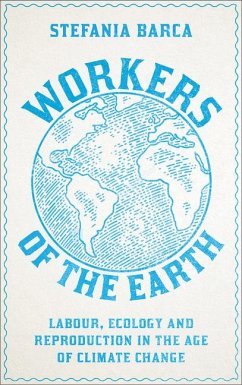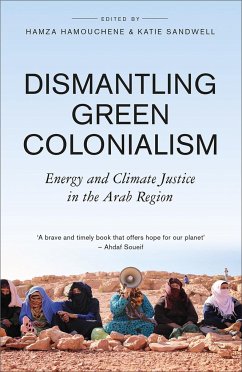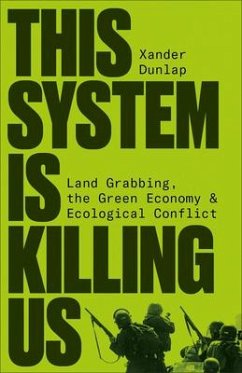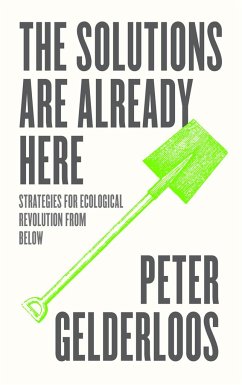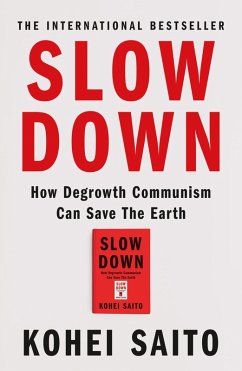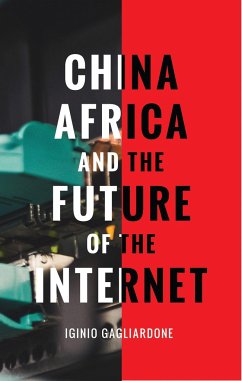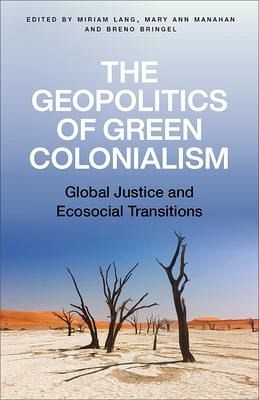
The Geopolitics of Green Colonialism
Global Justice and Ecosocial Transitions
Herausgeber: Lang, Miriam; Bringel, Breno; Manahan, Mary Ann
Versandkostenfrei!
Sofort lieferbar

PAYBACK Punkte
11 °P sammeln!




Colonial relations underpin now-ubiquitous claims around transition, net zero and the green economy
'Written by some of the most important theorists of the ecological, degrowth and debt movements ... A powerful and comprehensive analysis. Essential reading' Silvia Federici, author of Caliban and the Witch 'An impeccably documented, well-argued book [that shows that] a post-carbon world needs to be a post-capitalist world' Walden Bello, author of Deglobalization 'Brilliantly surveys critical feminist, ecological and decolonial perspectives from leading scholars and activists' Peter Newell, Professor, University of Sussex The time for denial is over. Across the Global North, the question of how we should respond to the climate crisis has been answered: with a shift to renewables, electric cars, carbon trading and hydrogen. But beneath the sustainability branding, these climate 'solutions' are leading to new environmental injustices and green colonialism. The green growth and clean energy plans of the Global North require the large-scale extraction of strategic minerals from the Global South. The geopolitics of transition imply sacrificing not only territories, but truly sustainable ways of inhabiting this world. This book provides a platform for the voices that have been conspicuously absent in debates around energy and climate. Drawing on case studies from across the Global South, the authors offer critiques of green colonialism in its material, political and symbolic dimensions, discuss the entanglements that connect the transitions of different world regions, and explore alternative pathways toward a liveable and just future for all. Miriam Lang is Professor of Environment and Sustainability at the Universidad Andina Simón Bolívar, Ecuador. Mary Ann Manahan is a doctoral assistant in the Department of Conflict and Development Studies at Ghent University, Belgium. Breno Bringel is a Professor of Sociology at the State University of Rio de Janeiro and a Senior Fellow at the Universidad Complutense de Madrid.
Produktdetails
- Verlag: Pluto Press
- Seitenzahl: 288
- Erscheinungstermin: 20. März 2024
- Englisch
- Abmessung: 211mm x 140mm x 24mm
- Gewicht: 314g
- ISBN-13: 9780745349343
- ISBN-10: 074534934X
- Artikelnr.: 69583180
Herstellerkennzeichnung
Libri GmbH
Europaallee 1
36244 Bad Hersfeld
gpsr@libri.de
Für dieses Produkt wurde noch keine Bewertung abgegeben. Wir würden uns sehr freuen, wenn du die erste Bewertung schreibst!
Eine Bewertung schreiben
Eine Bewertung schreiben
Andere Kunden interessierten sich für


